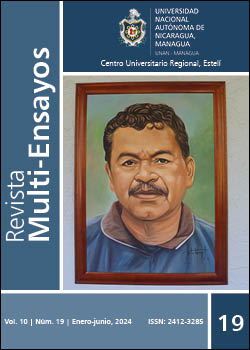Evaluation system for learning in Nicaraguan secondary education from a competency-based model
DOI:
https://doi.org/10.5377/multiensayos.v10i19.17561Keywords:
Learning, criteria, secondary education, assessmentAbstract
The Ministry of Education (MINED) of Nicaragua has implemented a new evaluation system for learning in all its modalities (initial, primary, and secondary) starting this year, 2023. This system seeks to evaluate not only the ability to memorize, but also the mastery, understanding and analysis of the contents, which become knowledge. This subject is exciting, complicated and, sometimes, controversial in the educational field since it is considered a key element for the success of a person’s education. Being a learning-centered assessment, it not only requires the student to acquire a series of cognitive skills, but to develop in a comprehensive manner considering their abilities and skills through critical and analytical thinking. This includes the focus of each subject, where each teacher establishes evaluation criteria based on achievement indicators. This represents a significant change from an objective-based curriculum to a competency-based curriculum. The purpose of this essay is to describe the evaluation system for learning, with emphasis on Nicaraguan secondary education, through a review of national and international literature. During this research, a direct relationship was identified between the assessment system and the competency-based model from a learning-based approach, which provides a solid theoretical framework for understanding its implementation and benefits.’
Downloads
789
HTML (Español (España)) 2611
Published
How to Cite
Issue
Section
License
Copyright (c) 2024 Revista Multi-Ensayos

This work is licensed under a Creative Commons Attribution-NonCommercial-ShareAlike 4.0 International License.

